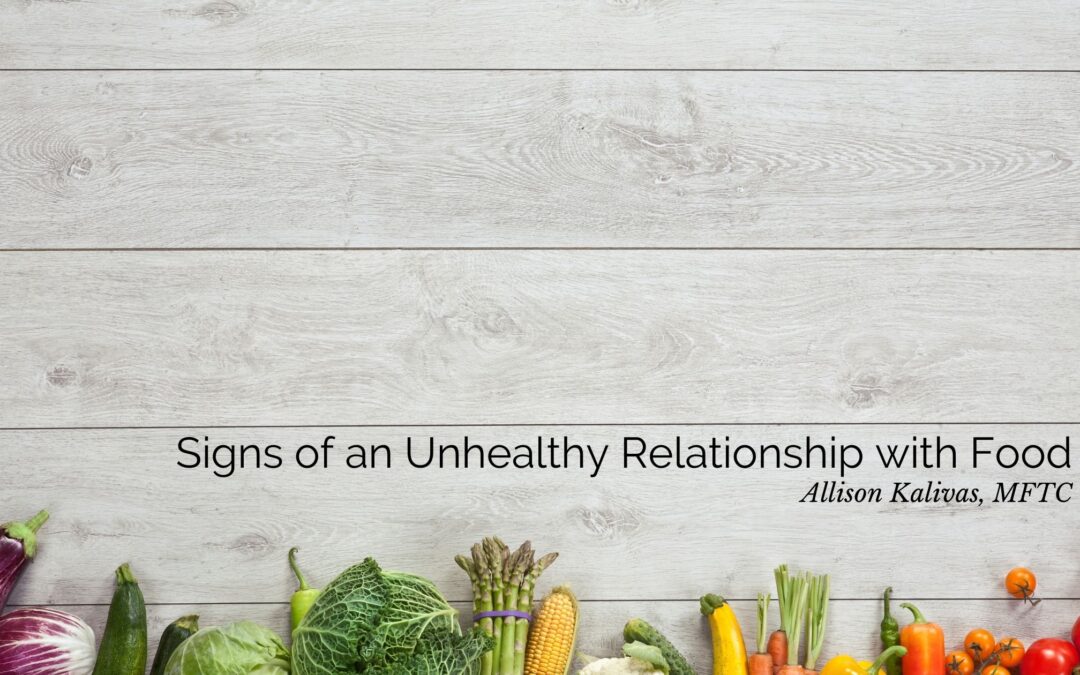
As a therapist who works with clients struggling with their relationship with food, I am often asked “what contributes to disordered eating?” or “What causes an eating disorder?” There are lots of reasons -emotional, societal, psychological- that food and eating patterns may become stressful and even problematic. One thing we see over and over again, is that any type of transition makes a person more susceptible to developing an unhealthy relationship with food. Food can become a way of coping with emotions or filling a void. When a person’s food choices are influenced by emotions or self-esteem, their relationship with food and eating can lead them to feel stuck and confused. This type of experience can also lead to anxiety, stress, and can be a precursor to an eating disorder.
Not sure if you might be struggling with an unhealthy relationship with food? Here are some things to note:
Are you…..
Feeling lonely(which is a common thing when in a new environment)? Loneliness can make you more susceptible to feeling connection through food or restricting food
- Finding yourself overly concerned that you are eating “clean foods” or healthy foods?
- Labeling certain foods as ‘good or bad’ foods?
- Feeling shame or guilt around food (while eating or , after eating?
- Focusing on “self-control” instead of self-care when it comes to your eating?
- Increasingly eating alone or only eating the same foods?
Do you…..
- You have “cheat days” or thoughts that what you eat will make or break you entire day
- View meals and eating as only calories, and then use behaviors to “burn off” these calories
- Notice decreased flexibility around your meals or food (when you eat, what you eat, who or who doesn’t eat with you, etc.)

Resources:
Eating Disorder Foundation (Denver, CO) https://eatingdisorderfoundation.org/
National Eating Disorder Association https://www.nationaleatingdisorders.org/learn
Photo Credits:
Photo by Brooke Cagle on Unsplash
Photo by Antor Paul on Unsplash
Photo by Keenan Beasley on Unsplash


 Feeling lonely(which is a common thing when in a new environment)? Loneliness can make you more susceptible to feeling connection through food or restricting food
Feeling lonely(which is a common thing when in a new environment)? Loneliness can make you more susceptible to feeling connection through food or restricting food

